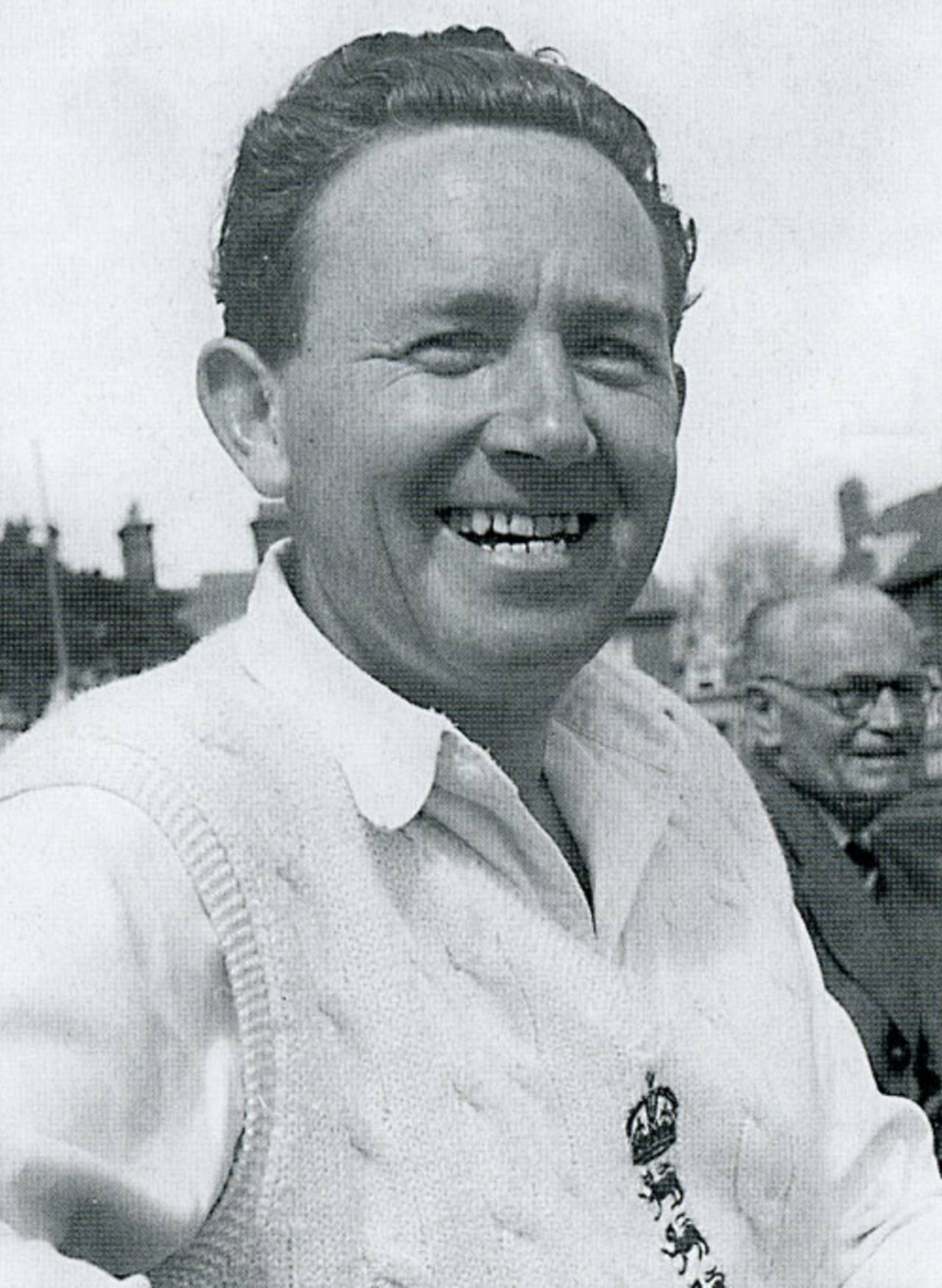Don Smith
Smith had just turned 34 when he was selected for England against West Indies in 1957
17-May-2022

Don Smith • ESPNcricinfo Ltd
SMITH, DONALD VICTOR, who died on January 10, aged 97, had just turned 34 when he was selected for England against West Indies in 1957. He celebrated his call-up with a century against the touring team at Hove, but - opening with Peter Richardson - he could not carry the momentum into the Tests. In three matches, he managed a best of 16 not out, and was not selected again. His confidence, though, was undented: he finished the summer with 2,088 runs at 42, comfortably his most prolific year, and 39 wickets.
Born in Broadwater, Worthing, Smith served as a Lancaster pilot during the Second World War, and made his debut for Sussex in 1946. Initially, his slow left-arm was his stronger suit, but he worked hard to become an attractive left-handed opener. In 1950, he passed 1,500 runs, including a career-best undefeated 206 against Nottinghamshire at Trent Bridge.
"Don makes the grade" read the headline in the Daily Express. Except he hadn't. Partly because of the presence of David Sheppard, his career was becalmed, until Robin Marlar was made captain in 1955. That summer, Smith topped 1,000 runs, and was persuaded to become a medium-pacer. "He was no good as a left-arm spinner because he didn't spin it," said Marlar. "But I admired the role Trevor Goddard played for South Africa, and I thought Don could do the same for us. I had seen him in the nets, and I knew he could do it." Smith became a valued member of the Sussex attack for the next six seasons.
He was just as effective in 1956, when he combined 1,685 runs and 72 wickets, including a career-best seven for 40 for MCC against Oxford University at Lord's. But it was just a warm-up act for his golden summer in 1957. In the Championship opener against Gloucestershire at Hove, he led a pursuit of 267 with an explosive 166 in just under three hours. Exploiting a 40-yard boundary on the pavilion side, Smith treated off-spinners Bomber Wells and Derek Hawkins savagely. One spectator ran on with an umbrella pleading for an end to the bombardment; another suffered a fractured jaw after being hit by one of his nine sixes. When Smith visited him in hospital, he found his apology was not necessary. "It was a marvellous innings," the patient said. The Daily Mirror called him a "cricketing superman". Marlar said: "His batting improved tremendously because of the confidence he gained from his bowling success. He had been a nearly man, but suddenly he was performing."
Smith hit further hundreds against Glamorgan, Middlesex and the West Indians - carrying his bat for 147 out of Sussex's 256 - to earn selection for the Second Test at Lord's. "I suppose they thought, 'Well, this fella's in good nick, we might as well let him have a go,'" he said. But Test cricket was different, and in four innings he was dismissed three times - for eight, one and nought - by Frank Worrell. In his second match, at Trent Bridge, he walked after edging Worrell to Rohan Kanhai, prompting a frosty dressing_room reception from captain Peter May: "You don't walk in Test matches." Recalling the incident with journalist Paul Hayward in 2017, Smith remembered: "I said, 'Sorry Peter, but this is a cricket match, it's what I do.'" After talking to the umpires, May told him he would have been given not out had he stood his ground. "I thought, 'This really isn't me.'"
In county cricket, he was never so successful again, but passed 1,000 runs for the next four summers, and enjoyed another productive year in 1961, with 1,527 runs and 58 wickets. Early the following season, he suffered a hairline fracture of the skull after being hit by Derbyshire's Harold Rhodes. He was out for only a couple of weeks, but retired at the end of the summer, aged 39.
Smith had started a rose-growing business, though gave it up for a post as coach and groundsman at Lancing College, where he stayed until 1986. In 1984, he coached Sri Lanka on their first Test tour of England, which led to a two-year spell in the role. Meanwhile, on a trip to Australia with Lancing, he reconnected with a former girlfriend. They had first met when he spotted her in the crowd while fielding at Lord's, but the relationship petered out, and she moved to Adelaide, marrying a policeman. When Smith was in the city, he found her in the phone book, discovered she was now divorced, and decided to emigrate. She soon became his second wife.
He attended matches at Adelaide Oval before the crowd noise became too much. But he was happy to have had a career in the 1950s: "I played towards the end of the great days of cricket." He was England's oldest surviving Test player when he died, a mantle that passed briefly to his old team-mate Ian Thomson, and then to another Sussex stalwart, Jim Parks.